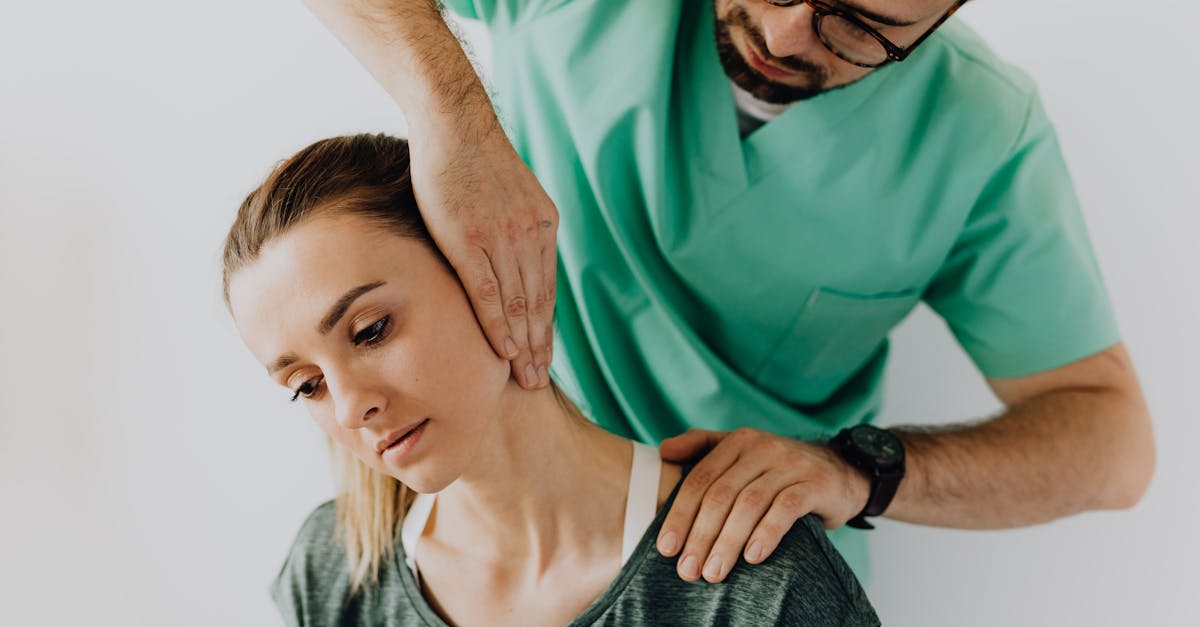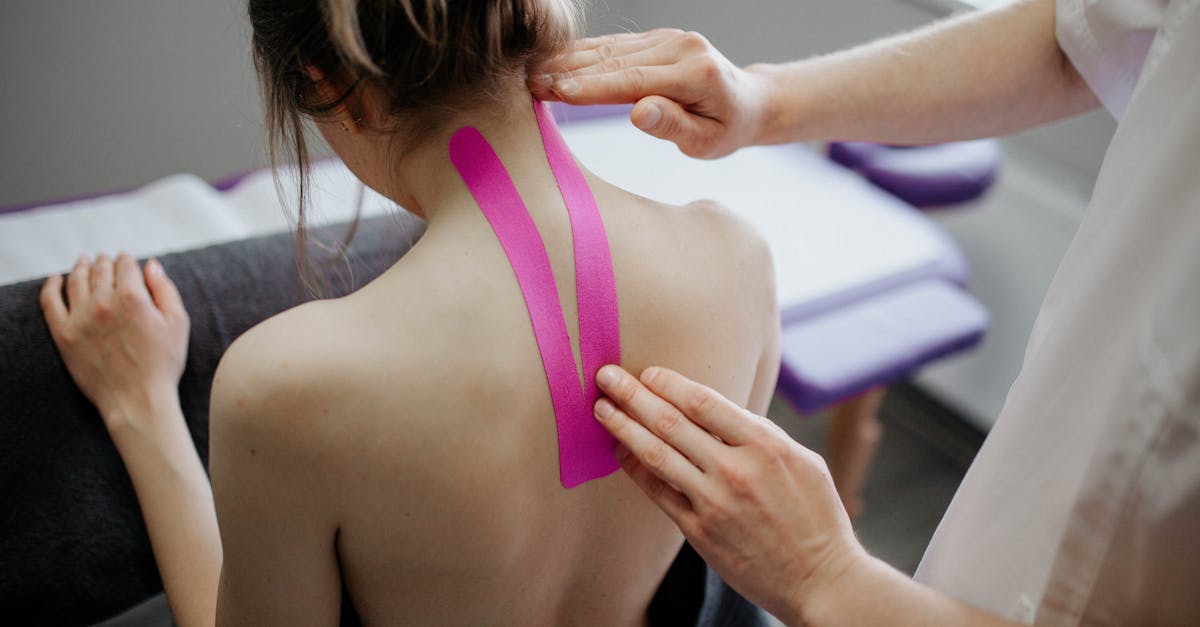|
In Short, waking up with neck pain is a widespread issue resulting from factors like poor sleep posture and an inadequate pillow. Understanding these causes can lead to effective relief strategies that improve daily comfort and overall mobility. By addressing these issues, individuals can experience enhanced freedom of movement, increased comfort, and reduced surrounding muscle strain. Implementing simple adjustments in sleep habits and using ergonomic tools can significantly mitigate discomfort while promoting better sleep health. |
Waking up with neck pain is a prevalent concern that can hinder daily functioning and overall quality of life. This discomfort often arises from poor sleep posture, such as inadequate pillow support or existing medical conditions like osteoarthritis. Recognizing these causes is crucial for establishing effective solutions. Strategies such as adjusting sleeping positions, using ergonomic pillows, and incorporating brief stretches can significantly alleviate discomfort. Additionally, understanding the role of stress and muscle tension further enriches the approach to achieving restful nights and pain-free mornings.

Enhance Your Well-Being with Pulse Align
Welcome to Pulse Align, where we trust in the body’s innate ability to regain harmony and balance through non-invasive techniques. At Pulse Align, our innovative method utilizes gentle, imperceptible pulses to promote your body’s natural alignment, helping to relieve tension and foster an environment of comfort and well-being. Discover how this holistic approach can support your journey to improved posture and restore balance to your daily activities.
Recalibrate Naturally
Our focus at Pulse Align extends beyond just managing discomfort. We provide clients with a gentle pathway for restoring muscle tone symmetry, promoting an overall sense of well-being. By allowing the body to recalibrate itself naturally, many clients experience enhancements in their everyday comfort and posture, leading to a healthier lifestyle. Our approach invites you to engage with your body’s capacity for alignment and ease without the need for invasive interventions.
Personalized Experiences
We take pride in our personalized approach, understanding that each client’s journey is unique. Numerous testimonials highlight notable improvements in areas like neck and back tension, overall posture, and daily comfort levels. Clients express how this gentle yet effective method has changed not just their physical well-being but their overall quality of life. This positive feedback reinforces our mission to offer a safe and supportive environment for everyone, including families looking for holistic wellness options.
Explore Your Wellness Journey
We invite you to learn more about how Pulse Align can contribute to your wellness. With locations in La Prairie, Mont-Royal, Terrebonne, and beyond, it’s easy to find a clinic near you. Visit our website to explore your local options and book a consultation. Remember, our approach complements your wellness journey, working alongside your healthcare team for a well-rounded experience. Experience the transformative benefits of our safe, non-invasive, and family-friendly methods at Pulse Align.
Medical Disclaimer
Pulse Align services are intended to complement and not replace medical care. We encourage all clients to consult with their healthcare teams regarding any medical concerns. Relief from discomfort should be viewed as a natural result of the body’s ability to restore balance rather than a direct intervention by Pulse Align.
- Causes:
- Poor sleep posture
- Inadequate pillows
- Chronic conditions (e.g., osteoarthritis)
- Previous injuries (e.g., whiplash)
- Muscle strain from stress or tension
- Poor sleep posture
- Inadequate pillows
- Chronic conditions (e.g., osteoarthritis)
- Previous injuries (e.g., whiplash)
- Muscle strain from stress or tension
- Solutions:
- Use ergonomic pillows
- Incorporate gentle stretches
- Apply warm compresses
- Adjust sleeping positions
- Consult a healthcare professional if pain persists
- Use ergonomic pillows
- Incorporate gentle stretches
- Apply warm compresses
- Adjust sleeping positions
- Consult a healthcare professional if pain persists
- Poor sleep posture
- Inadequate pillows
- Chronic conditions (e.g., osteoarthritis)
- Previous injuries (e.g., whiplash)
- Muscle strain from stress or tension
- Use ergonomic pillows
- Incorporate gentle stretches
- Apply warm compresses
- Adjust sleeping positions
- Consult a healthcare professional if pain persists

Waking up with neck pain is a prevalent issue that can greatly impact daily life, stemming from various causes such as poor sleeping posture, inadequate pillow choices, and underlying medical conditions. Identifying these causes is the first step towards implementing effective solutions that promote relief and improve overall well-being. By exploring these factors and recommended strategies, individuals can reclaim comfort in their mornings and enhance their quality of life.
Identifying the Causes of Neck Pain
Poor Sleeping Posture
One of the primary culprits behind waking up with neck pain is poor sleeping posture. When individuals sleep in positions that cause prolonged flexion or extension of the neck, muscle strain can result, leading to stiffness and discomfort upon waking. It is essential to recognize your preferred sleeping position and assess whether it supports the natural alignment of your spine.
Inadequate Pillow Selection
The type of pillow used also plays a critical role in neck health. Pillows that are too high or stiff can keep the neck in an unnatural position, exacerbating any discomfort. Conversely, pillows that are too low may not provide sufficient support. Choosing an ergonomic pillow that respects the natural curve of the spine can significantly alleviate morning neck pain.
Underlying Medical Conditions
Chronic conditions such as osteoarthritis, degenerative disc diseases, or previous injuries can contribute to persistent neck pain. For example, those with a history of whiplash injuries may experience recurring discomfort. It is crucial for individuals to be aware of their medical history and consider consulting healthcare professionals for personalized advice.
Effective Solutions for Relief
Improving Sleep Posture
Adopting a more supportive sleeping posture is one of the most effective strategies to mitigate neck pain. Individuals should strive to sleep on their back or side while using a pillow that maintains spinal alignment. Regularly switching sleeping sides can also prevent one-sided tension from developing.
Gentle Stretches and Exercises
Incorporating gentle stretches and exercises into your daily routine can help manage and prevent neck pain. Simple neck rolls, chin tucks, and side stretches can promote flexibility and alleviate muscle tension. Engaging in these practices before bedtime or upon waking can contribute to greater neck mobility.
Heat and Cold Therapy
Utilizing heat and cold therapy can be beneficial for relieving neck discomfort. Warm compresses can help relax tight muscles, while cold packs reduce inflammation. Alternating between heat and cold treatments can offer relief, depending on the symptoms experienced.
When to Seek Professional Help
Identifying Chronic Issues
If neck pain persists despite trying home remedies and improving sleep habits, it is advisable to consult a healthcare professional. Chronic neck pain may indicate underlying issues that require specialized evaluation and treatment, such as physical therapy or other therapeutic interventions.
Embracing a Holistic Health Approach
Integrating a holistic approach to health aligns with the principles of Pulse Align. Emphasizing neuromuscular health, symmetry, and recalibration of the nervous system can promote not only physical recovery but overall wellness. Regular physical activity, stress management techniques, and improving ergonomics during daily activities contribute to enhancing neck health.
By understanding the diverse causes of waking up with neck pain and exploring practical solutions, individuals can take proactive measures to reclaim their mornings. Adopting a holistic approach fosters not only immediate relief but also long-term health, aligning with the principles of wellness championed by Pulse Align.
| Causes | Solutions |
|---|---|
| Poor Sleep Posture | Adjust sleeping positions to support natural alignment. |
| Inadequate Pillow Support | Use ergonomic pillows that maintain neck and spine curvature. |
| Muscle Strain | Incorporate gentle stretches to promote relaxation and flexibility. |
| Previous Injuries | Encourage body awareness and mindful movement practices. |
| Stress and Tension | Practice relaxation techniques such as yoga or deep breathing. |
| Lack of Sleep | Establish a soothing sleep routine to enhance restful slumber. |
| Ergonomic Misalignment | Implement adjustments in daily environments to promote proper posture. |
| Dehydration | Maintain adequate hydration to support muscle function and recovery. |
| Age-Related Changes | Engage in regular physical activity to support mobility and balance. |
| Pillow Height Issues | Select pillows that assist in achieving optimal head and neck alignment. |

Embarking on a Holistic Wellness Journey with Pulse Align
Clients from various regions, such as La Prairie and Mont-Royal, have expressed immense satisfaction with the healing experiences they’ve encountered through Pulse Align’s unique approach. Many have reported feeling significant improvements in their neck pain, which was a persistent issue upon waking up. One client from Terrebonne shared, “Since I began treatment with Pulse Align, I noticed my neck stiffness has reduced remarkably. The gentle pulses help my body recalibrate naturally, and I wake up feeling refreshed.”
In Chicoutimi, other clients have echoed similar sentiments. A mother commented, “After just a few sessions, I realized that my neck discomfort was alleviating without the need for medication. The supportive environment at Pulse Align fosters a strong sense of well-being as I embrace my journey to better health.” This speaks volumes about how the treatment allows the body to heal itself in a holistic manner.
Clients in Châteauguay have also experienced transformative results. One individual mentioned, “I was amazed at how quickly my neck pain lessened through Pulse Align’s gentle approach. The focus is not only on symptom relief but on empowering my body to restore its balance.” Such feedback underscores the effectiveness of the method in enhancing overall wellness and function.
Individuals in Deux-Montagnes have shared their positive experiences about joining the Pulse Align community in their quest for a healthier, pain-free life. A local resident stated, “The knowledge shared by the team at Pulse Align about improving posture and understanding the body’s needs has truly changed my perspective on wellness. It’s about integrating care with everyday activities.”
In Sainte-Marie, another client commented, “Through Pulse Align’s innovative techniques, I’ve learned how to better manage my neck stiffness, leading to improved mobility. I love using their approach to support my health journey, and I recommend it to everyone seeking natural healing in the area.”
Clients from all these areas are encouraged to explore the potential of Pulse Align in enhancing their well-being. By aligning treatment with everyday life, we help individuals reclaim their health naturally. For more information about Pulse Align clinics near you, visit our Our Clinics page, and discover how we can support you in your wellness journey alongside your healthcare providers.
Waking up with neck pain is a distressing experience faced by many individuals, often affecting daily routines and overall quality of life. The origins of this discomfort are multifaceted, frequently stemming from poor sleep posture, inadequate pillows, or pre-existing medical conditions. Understanding these underlying causes is essential for effectively addressing and mitigating the pain.
One prevalent factor contributing to neck pain upon waking is poor sleep posture. When individuals sleep in positions that keep their necks flexed for extended periods, it can lead to muscle strain and stiffness. Common sleeping positions, such as lying on one’s stomach or using pillows that are excessively high or stiff, can exacerbate this issue. As a result, waking up with discomfort can become a recurring problem for many.
Inadequate pillows significantly influence neck pain as well. A pillow that is either too thick or overly firm can maintain the neck in an unnatural position throughout the night, resulting in inflammation and tension. Likewise, using pillows that fail to support the neck’s natural curve can lead to chronic strain on the cervical region. Finding the right pillow is crucial for maintaining proper alignment during sleep.
Furthermore, underlying medical conditions can contribute to morning neck pain. Issues such as osteoarthritis or previous injuries, like whiplash, can complicate matters. These conditions can manifest as stiffness and inflammation in the cervical spine, aggravating symptoms and contributing to discomfort upon waking. Those with a history of neck-related injuries may be more prone to experiencing pain in the morning, highlighting the need for tailored approaches to pain management.
Dr. Sylvain Desforges, an expert in osteopathy, naturopathy, and manual medicine, is a leading figure in the quest for effective solutions to neck pain. As the founding president of TAGMED clinics and the ACMA association, Dr. Desforges pioneers innovative healthcare practices aimed at relieving chronic pain. His dedication to patient well-being drives him to integrate advanced technologies such as spinal decompression, laser therapy, and shockwave therapy into his treatment protocols. These techniques are designed to alleviate discomfort and enhance mobility, empowering patients to reclaim their lives.
Dr. Desforges approaches pain management holistically by focusing on evidence-based care. By assessing each patient’s unique circumstances, he delivers personalized solutions that address both symptoms and underlying causes. Utilizing advanced therapeutic technologies, he aims to enhance recovery while minimizing reliance on medications.
Moreover, Dr. Desforges emphasizes the importance of lifestyle adjustments as part of a comprehensive plan to combat neck pain. Educating patients about proper sleep habits, ergonomic workspace setups, and stress management techniques plays a vital role in ensuring lasting relief. His commitment to fostering a supportive environment promotes overall health and equips patients with proactive strategies to ensure a pain-free experience upon waking.
Neck pain is not just an ordinary discomfort; it is a significant barrier to daily living. Through the expertise of professionals like Dr. Sylvain Desforges and the innovative services offered at TAGMED clinics in Montreal, Terrebonne, and Mont-Royal, individuals suffering from morning neck pain can find a path toward healing and improved quality of life. By utilizing a blend of advanced techniques and personalized care plans, patients can achieve lasting relief and enhance their overall well-being.
TAGMED’s Neurovertebral Decompression Technology: A Breakthrough for Chronic Pain Relief
Mechanism of Action
The neurovertebral decompression technology offered by TAGMED operates by applying a controlled and progressive traction force to the spine. This precise method is designed to increase the space between vertebrae, effectively reducing pressure on the intervertebral discs and nerve roots. As the traction is applied, it facilitates better fluid circulation in the targeted area, which is crucial for alleviating inflammation and relieving pain. This process not only provides immediate pressure relief but also creates a negative pressure environment within the discs that encourages the absorption of vital nutrients, promoting regeneration and recovery.
Specific Advantages
This non-invasive approach demonstrates remarkable efficacy in relieving chronic pain and symptoms associated with conditions like herniated discs, bulging discs, and moderate to severe spinal or foraminal stenosis. By significantly alleviating pressure on nerve structures and optimizing fluid circulation around the discs, neurovertebral decompression fosters quicker recovery. Many patients report improvements such as enhanced mobility, reduced discomfort, and an overall better quality of life following treatment. This innovative treatment method provides hope for those who have struggled with persistent pain, allowing them to regain their functional abilities.
Comparison with Other Treatments
Comparing TAGMED’s neurovertebral decompression to traditional treatment options for managing the conditions discussed, such as painkillers, corticosteroid injections, surgery, or conventional physical therapy, highlights its unique benefits. Unlike invasive surgical methods, neurovertebral decompression carries minimal risks and avoids pharmacological interventions that may lead to side effects or dependency. Many patients can experience a quicker recovery time while achieving significant pain relief, making it an attractive alternative among other therapeutic approaches. For example, while painkillers may offer temporary relief, they do not address the underlying structural issues, whereas neurovertebral decompression directly targets the source of discomfort.
Case Studies and Testimonials
Numerous patients have shared their transformative experiences with TAGMED’s neurovertebral decompression. One testimonial from a patient suffering from chronic neck pain highlights, “After several sessions, I noticed a dramatic reduction in my pain levels. The ability to engage in activities I once avoided feels incredible.” Another individual reported, “I’ve struggled with a herniated disc for years. This treatment not only relieved my pain but improved my mobility; it’s like I have my life back.” Such feedback underscores the effectiveness of neurovertebral decompression as a viable treatment option, showcasing its potential to deliver long-lasting results without invasive procedures.
Conclusion: Waking Up with Neck Pain – Understanding and Solutions
Waking up with neck pain is a pervasive issue that impacts many individuals, often stemming from a variety of factors including poor sleep posture, inappropriate pillow choices, and underlying medical conditions. Recognizing these causes is crucial for developing effective strategies to alleviate discomfort. By assessing sleeping habits and making adjustments to the sleep environment, individuals can significantly reduce the frequency and intensity of morning neck pain.
One of the most essential steps in addressing morning neck discomfort involves optimizing sleep posture. Whether adjusting the height of your pillow or changing your sleeping position, creating an ergonomic sleep setup pays dividends in ensuring *proper neck alignment*. In addition to this, incorporating gentle stretching and exercises into the daily routine can foster strength and flexibility within the neck muscles, thereby enhancing overall neck health.
Furthermore, understanding the role of stress in exacerbating neck pain is crucial. Regular stress management techniques, such as yoga and relaxation exercises, can alleviate muscle tension during sleep, promoting more restorative nights. For those whose pain continues to persist, seeking professional guidance is recommended; healthcare professionals can assist in uncovering deeper issues and suggest tailored treatment plans.
Ultimately, navigating the complexities of waking up with neck pain requires a comprehensive approach that includes evaluation, adjustment, and appropriate professional support. By implementing these effective solutions and remaining vigilant about body mechanics during sleep and daily activities, individuals can reclaim their mornings, reducing discomfort and enhancing their overall quality of life.

Do you suffer from discomfort that responds little or not at all to conservative treatments?
Waking up with a sense of discomfort can be a common experience influenced by various factors in your daily routine, especially your sleeping posture. At Pulse Align, we offer an innovative, non-invasive method that uses gentle, imperceptible pulses to help restore the body’s natural balance and improve posture. By promoting muscle tone symmetry, this approach may lead to noticeable reductions in tension and enhance your overall well-being.
Our service at Pulse Align is not aimed at directly addressing symptoms. Instead, we focus on helping the body recalibrate itself naturally, which often results in remarkable improvements in comfort and posture. This empowering process encourages the body to restore equilibrium, leading to a more fulfilling, pain-free experience in your daily life.
We pride ourselves on our personalized approach to wellness that acknowledges the uniqueness of each client. Many clients have shared their transformative journeys with us, noting significant improvements in tension, overall comfort, and daily functionality after engaging with our services. They appreciate the holistic methodology at Pulse Align, which fosters a nurturing environment for families, ensuring that both children and pregnant women can benefit from our offerings without any worries.
We invite you to explore the Pulse Align website to learn more about our innovative services and to find locations nearby, including La Prairie, Mont-Royal, Terrebonne, and many more. Booking a consultation for yourself or your family is simple and convenient. It’s essential to understand that while Pulse Align enhances your wellness journey, we work in conjunction with healthcare services rather than as a replacement. Embrace the opportunity to restore your natural balance with our safe, family-friendly approach.
To learn more about our services and book an appointment, visit our website: Pulse Align.
Frequently Asked Questions
Neck Pain
Do breathing exercises help?
Proper breathing reduces stress and muscle tension, helping alleviate neck pain.
Can meditation help?
Meditation reduces stress and muscle tension, indirectly aiding in relieving neck pain.
Are cervical manipulations dangerous?
If performed by a qualified professional, they are generally safe, though there is a slight risk of complications.
Is physiotherapy effective?
Yes, a physical therapist can provide exercises, stretches, and manual therapy to relieve cervical pain.
Is applying warming creams useful?
Yes, warming creams can locally relax muscles and reduce pain.
Can I use heating patches?
Yes, heat patches can provide temporary relief by relaxing muscles and improving blood flow.
Is Pilates recommended?
Yes, Pilates strengthens deep muscles and improves posture, helping to reduce neck pain.
What is cervical pain?
It’s pain localized in the neck area, which can radiate to the head, shoulders, or upper back.
Are anti-inflammatory medications helpful?
They can temporarily relieve pain, but addressing the underlying cause is essential for lasting relief.
Do strengthening exercises help?
Yes, strengthening the neck and shoulder muscles can stabilize the cervical region and reduce pain.
Sophie Gambert understands that neck pain is far more than a physical ache—it’s a roadblock to living the life you love. As a Neck Pain Awareness Advocate at Pulse Align, she is committed to shedding light on the underlying causes, sharing practical relief strategies, and offering genuine support to readers seeking to reclaim their freedom of movement. With a warm, empathetic voice and a keen eye for the latest in pain management research, Sophie leads conversations that uplift, educate, and inspire. She believes that every individual deserves to feel heard, understood, and guided toward healing, one step at a time.
Medical Disclaimer
The information and advice provided on this site do not replace the advice, diagnosis, or treatment of a healthcare professional. Please note that the author of this article is neither a doctor nor a specialist in a medical specialty as defined by the Collège des médecins du Québec. Manual medicine, functional medicine, and sports medicine as described on this site exclude any medical treatment or diagnosis made by a doctor or medical specialist. Always consult your doctor for any medical questions. For more details, please read our complete Legal Notice.




